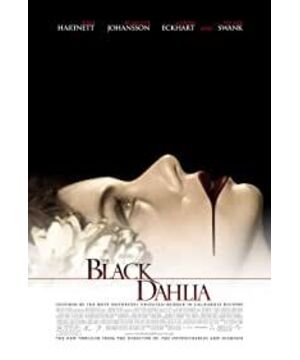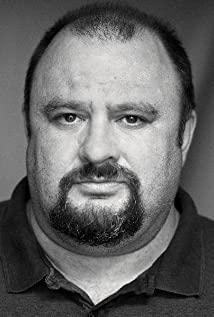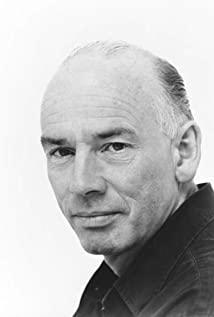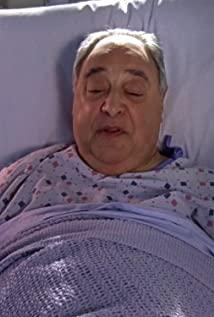Wang Audiences who were disappointed by the famous director Brian de Palma's "Black Dahlia" can read the newly published original translation of the Shanghai translation. A novel with a Chinese translation of more than 240,000 words must be greatly simplified if it is to be adapted into a 120-minute video. From books to movies, there are large passages that are completely missing, and there are small details where the dragon sees the beginning and the end. It's a pity that the film adaptation seems to be a matter of picking up important content and discarding it. Although the stacked plots barely outline the frame of the story, they ignore the souls of the characters.
As the film critic Mark Sarov sarcastically, among these people, "the only angry actor plays a dead girl." The true character of other characters must be found in the book.
The idea came long shot
in 1987 published "The Black Dahlia", is the first James Al Roy "LA tetralogy" of. The book allows critics to regard him as the author of serious literature. Based on the historical facts of an outstanding case, the novel fictionalizes the process of two Los Angeles detectives who investigated the case and the pair's partner secretly solving the case.
The mutilated body of the deceased Elizabeth Short was found in the grass on the roadside of Los Angeles on January 15, 1947. She often referred to herself as "Betty" and "Beth" when she was alive. After death, people were more accustomed to calling her the nickname "Black Dahlia". ". Although more than 50 men and women surrendered to the police for this, the real murderer was never found.
In addition to the real dahlia case, the two protagonists of the novel "Mr. Ice" Dwight Brecht and "Mr. Fire" Lee Blanchard are also dealing with two fictitious cases at the same time, and the film retains them. The film’s commendable points are really limited, one of which is a 1-minute long shot starting at 21 minutes. This shot puts 3 interspersed parallel clues in the same time and space:
At first, the audience followed the gazes of the two detectives and looked at the house they were monitoring, nominally for the work assigned by the bureau-looking for the robbery murderer Nash, and then the angle of view was raised over the roof, accompanied by the crow on the roof. The audience saw that there seemed to be someone lying in the grass on the other side of the vision house. A lady dropped the stroller and screamed and ran to a moving car for help. The car did not stop and the camera zoomed in. , Followed the car for a while, followed another passerby’s bicycle, and finally landed on a pedestrian on the side of the road. He complained to the black girl who was travelling with him that “corrupt police will trouble him”. The two walked back to the house monitored by the detectives. In the gun battle that followed, four people died, including the pedestrian.
At that time, Dwight thought that a gangster in the house was aiming at him. It was Li who saved him first. He didn’t know that the man who walked over was Li’s target. The man was an insider of a bank robbery, holding Li’s father. The handle, and Li was the "corrupt policeman" who came to trouble him; and neither Dwight nor Li knew that the "dead girl" in the grass that shocked the lady would drag them away from the Nash case. , Let them fall apart, one arrives at the truth, the other arrives at death.
And this long lens is just a flash of light. The narrative of the movie "Black Dahlia" is boring and confusing. A review of "The New Yorker" described it as "a goose fattened with foie gras." If you want to see the multi-line narrative that Elroy is good at on the screen, you have to watch another adaptation of the film "L.A. Confidential" in the "L.A. Tetralogy".
The "Mr. Ice"
movie "L.A. Confidential" that became a good husband has at least 5 characters that are unforgettable. Parma's "Black Dahlia" also has 5 important roles, and a collection of several well-known actors, but only Dahlia herself is unforgettable.
The novel is narrated in Dwight's first person, and he just said "I don't know her when she was alive". The film exemplarily carried out this point. Living dahlias appear almost exclusively in black and white images—a few rolls of audition film and a pornographic film. This pornographic film is one of the key links in solving the crime in the novel, while the other audition clips are original movie creations. If "Black Dahlia" is considered a new noir film, the loneliness, fragility and wildness that Schott reveals when he performs poorly to the camera alone, as well as the naive and pathetic residue of idealism trampled on the soles of the feet by reality, contributed A large part of the black elements-the overly tough Hilary Swank plays the slutty rich girl Madeleine-the femme fatale inherent in the film noir is a disaster; the night Lee was killed vividly imitated the film noir The usual light and shadow effects, but under the background music for fear that the audience will not be nervous, and you will be nervous first, it seems to have entered a cheap action movie.
And the worst thing about this pot of warm water is not the narrative or the soundtrack, but many of the subtle and indispensable parts of the book, like a small piece of the whole puzzle, are taken over in the movie, leaving a lot of tails. "Thread Head". This is why some film critics say that Palma "throws everything on the screen, but almost nothing is effective". It is not that the evidence chain of reasoning in the film is incomplete, on the contrary, the suspenseful setting and the detection of the case can be justified, and the most lost are the clues that lead to the inner world of the characters.
Last year's popular American drama "True Detective" and "Black Dahlia" are similar in writing. Solving the mystery is as important as exploring the hearts of the two detectives. Dahlia has a heavier influence on the pair of partners. Although she is no longer alive, she still makes their souls tremble and their bodies sink.
Li has a little sister who went missing when he was a young girl. This is because he lives with the missed girl Kay, and takes care of her for her schooling, but there is no psychological motivation to bond with her. This knot has been shown before the opening of the novel, and the movie The adaptation also made this point suspense: until two thirds of the film, the audience still didn't know why Lee was so obsessed with Short's case. In view of the lack of preparation for this suspense, and the strange relationship between Li and Kai that live together but do not unite, only one sentence has no response. Even if Kai chuckles in the end that Lee had a missing sister, it is difficult for viewers who have not read the original to understand. Which logic.
Dwight didn't care about Dahlia at first, and kept urging Li to concentrate on hunting down Nash. There are still in this "thread" movie, but his obsession with dahlias in the later period is far from enough. Although Kay bumped into him and fooled around with Madeleine, she shouted "She looks like that dead girl, you are so sick"; Madeleine also said, "You can't kill me because I look like her." However, it did not point out that Dwight used Madeleine as a substitute for Dahlia, and without the passage in which he announced that he and Elizabeth Short were "formally joined" through Madeleine’s body, these two lines became useless." Thread head".
After Li died, "Mr. Ice" Dwight wept when watching Dahlia's audition footage. At this time, he was just a good sympathetic policeman. When does film noir need such a detective?
The indistinct Los Angeles
is not only the protagonists, but the "bleaching" of the Los Angeles Police Department by the movie version of "Black Dahlia" is also the problem of the decline in style. The "L.A. Tetralogy" is set in Los Angeles in the 1940s and 1950s. The sin city where politics, police, and the media are stubborn together is an important resident role in this series of works.
And there are only some thin remnants of this character in Palma's "Black Dahlia". In the pyramid built by money and power, the darkness of the upper level is largely represented in the book by Deputy District Attorney Iris Lowe. As the chief legal officer of the case, many of his decisions were based on the consideration of how to obtain more political capital in this case: at first he let the newspapers that support him politically suppress the reports of Schott’s chaotic private life. It is "the more the public sympathizes with her", and the "more benefits he can get" when he sued; he even wanted to design a catch tank so that the case could be closed quickly.
The lower level is not clean. Everyone is taking personal gains within the scope of their powers. The most typical ones are the two protagonists' colleagues, a pair of police officers, father and son. In the book, Dwight spelled out the itinerary of the days before Schott’s death bit by bit in the indistinguishable information: Dahlia was hired and used cheaply one by one in Sin City, until she met her. To the last employer. The wicked police father and son were part of the journey, and his father hired Schott to "open buds" for his sadistic son. It is a trivial matter that the highlight of the two is gone, but several large plots including this paragraph and Li Ke’s death in Mexico and Dwight’s visit to Short’s hometown have been omitted. It was Dwight who used the first clue he got (Dahlia had been in a lesbian bar) and slept with the murderer's daughter. This is too easy.
In fact, the two protagonists who have a certain sense of justice can't stand alone. The film narration tells about the good time they had cooperated in handling the case at the beginning. There are only a few words about how many suspects they have caught. They are like two role models in the police world. In the book, Lee made Dwight understand what it is like to be a police officer, but not just This is the content. They sing and use violence when they want information, break the window and drive the car that owes money back to the car dealer to make extra money. Li also took the inside information of the horse race from the gang boss.
This corrupt environment is the basis of Li's fall. After cleaning up this piece of evil soil, Li is only a corrupt policeman who exists as an individual and has a greedy personality, rather than a complicated figure walking between good and evil. The film changes the plot that Li was the mastermind behind the robbery and sent people to jail, instead he just secretly took the money robbed by the mastermind. This change made Li a little whitewashed, but it was just as useless as the "purification" of "Mr. Ice" Dwight. Film noir also does not need such whitewashing. In this way, it just turned the conspiracy into a much boring conspiracy.
View more about The Black Dahlia reviews











